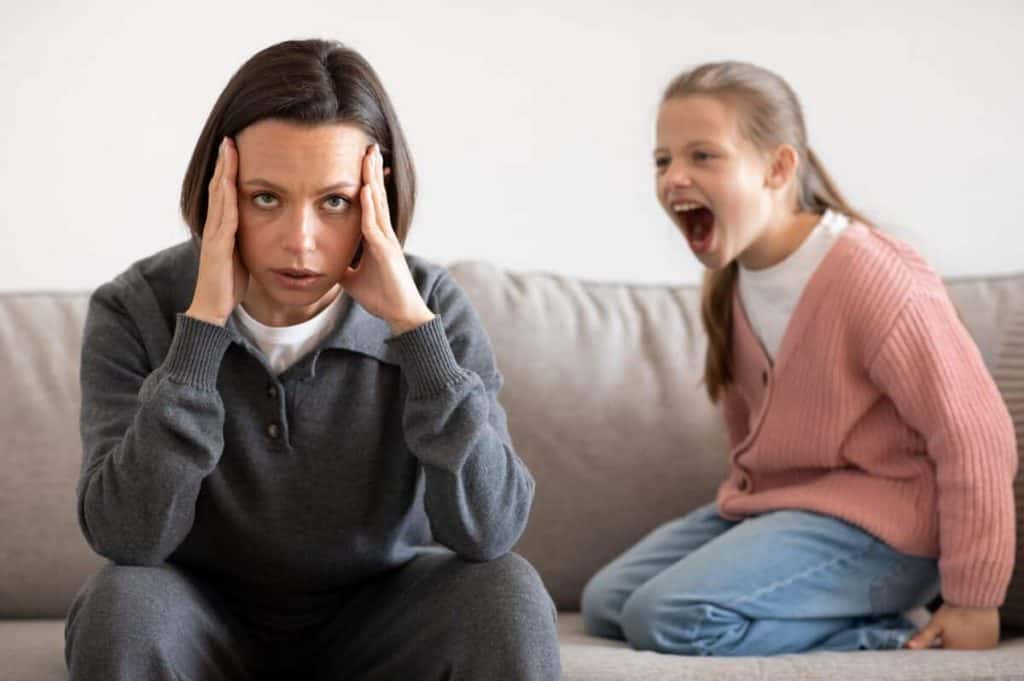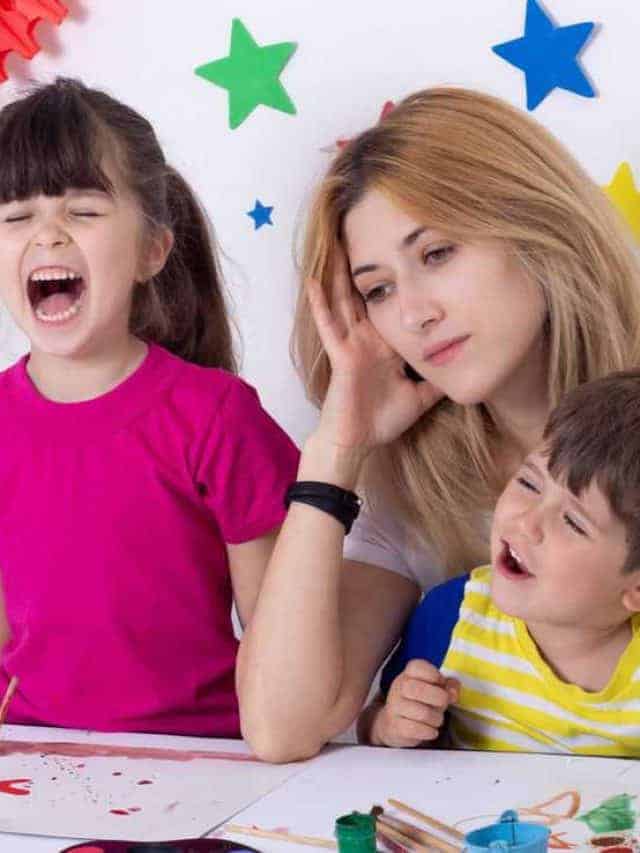If we solve things by arguing and shouting, we’re teaching the child that this is the way to solve problems.
When parents argue in front of their children, they are unconsciously telling them that they are responsible for the conflict.
But do you really want to turn your children into people who always feel guilty and yell at others?
Nobody says it’s easy to always be calm and never argue.
I’m not going to lie to you, my husband and I know how to exchange harsh words without checking whether our child is there first.
And I’m ashamed of it!
It’s not something we should do.
I’m learning more and more to overcome my ego, because my child is more important than my “victory”.
As adults, we should be mature enough not to let our emotions get the better of us and fight like little children on the playground.
It doesn’t matter who won and who lost.
It’s important for parents to have a harmonious relationship, especially in front of their children.
Of course, I’m not saying it’s an easy task.
At the same time, I don’t think one parent should keep quiet while the other pours fire.
Teaching a child to suffer and not fight back isn’t an option either.
If Mom stays silent while Dad yells, you’ll only be teaching the child that it’s normal for a man to yell, so your daughter will probably find such a partner in the future.
She’ll get used to it, and she’ll think it should always be this way.
So it’s crucial that BOTH PARENTS calm down and learn to argue calmly.
You need to act harmoniously in front of the child, so as not to confuse her and so that she grows up to be a self-assured person.
Of course, adults don’t agree on everything.
Our attitudes and behavior are the result of our upbringing, our culture and our temperament.
Besides, disagreeing in front of a child can be fine as long as the child is not the object of the disagreement, and the tone of discourse is low and the words are well chosen.
You shouldn’t pretend that everything is fine forever.

We can disagree about many things, but without accusations, insults, mockery and high tones.
In this way, we teach the child dialogue, discussion of problems and correct conflict resolution.
The problem arises when a parent, through his or her own upbringing, gets into the habit of solving problems by shouting.
If, at home, problems have been solved by shouting and slamming the door, you’ve probably adopted this pattern too.
He who is loudest oppresses, i.e. wins!
Children learn most from their parents.
If you love your children, you’ll overcome your ego and the need to correct your partner right now and “win”!
A Harvard study has shown how conflict resolution is transmitted from parents to children.
Researchers observed 47 14-year-old teenagers at home, recording their parents’ conflict resolution patterns.
After 17 years, they repeated the research on adults, wanting to know how these children resolved their own conflicts.
The results were clear.
The levels of negativity or positivity their parents expressed in conflicts earlier were directly correlated with their children’s levels of negativity and positivity later in life towards their partners.
Children adopt parents’ methods

When the focus of parental conflict is solely on the child, the stakes are a little higher.
Children are emotionally attached to their parents and don’t want to come between them.
Children don’t want to choose!
A child should never have to choose who’s right or think they’re the cause of a fight.
By doing so, you create a being out of the child who carries the burden of guilt and fear on his or her shoulders.
Responsibility is imposed on the child, which in the long run leads to the feeling that there’s something wrong with him or her.
Such a child will withdraw into himself because he thinks he’s preventing his parents’ quarrels, considering that they’re arguing because of him.
If the parents separate, the child may carry a coffin of guilt with him for the rest of his life.
What’s more, a child who constantly sees his parents fighting is likely to develop some form of depression, anxiety or aggression.
So, if you want to hurt your child, keep on fighting.
How can I stay calm in front of the kids?

When a hot flash occurs, it’s very difficult, if not impossible, to say to yourself “OK, I’m not going to react now, I’ll wait until the child falls asleep”.
Even when parents manage not to say the words, the child will feel the looks, the pursed lips, the heavy breathing and everything else we communicate non-verbally when we’re in a state of struggle.
We’re not robots!
We have emotions, and they know how to hide.
But we’re adults, and we should at least learn to “argue” – that is, to discuss things we disagree about in a reasoned, calm manner.
This means:
- avoiding high tones
- no pointing fingers (this is a non-verbal threat)
- no interrupting the other person while talking
- no passive aggression on the face or body language (rolling eyes, pursed lips, hands on hips, heavy breathing, sideways glances…)
- no hidden glances at the child
- never mention the child
- never involve a child in an argument
If you argue in front of the child, it’s extremely important to reconcile in front of the child.
Apologize to your partner, hug the child and make it clear that he or she is absolutely not the subject of disagreement, that Mom and Dad love each other, but that they are discussing certain things to resolve them.

